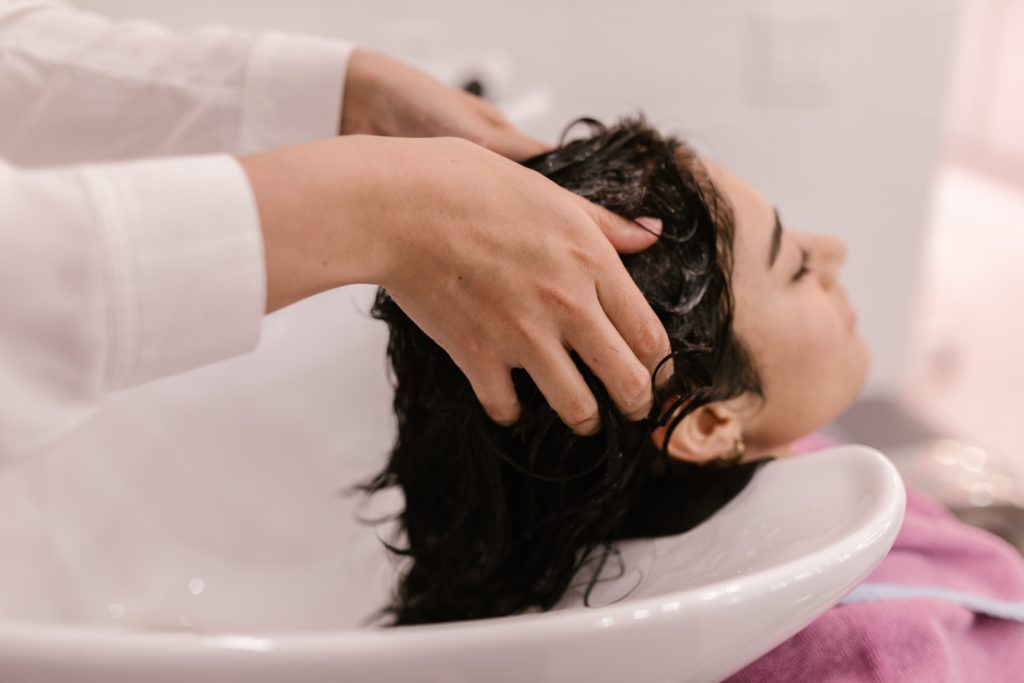Our hair is an integral part of our appearance, and taking good care of it is vital for maintaining its health and shine. However, some people are more prone to having greasy hair than others. This can be due to various factors, such as genetics, hormonal changes, and environmental conditions.
It can be frustrating to deal with greasy hair, and many people resort to washing it frequently to combat the issue. However, washing your hair too often can do more harm than good, and in this article, we’ll explore why you should wash your grease-prone hairless.
How Often Should You Wash Your Hair?
The frequency with which you should wash your hair depends on various factors, such as your hair type, lifestyle, and environment. For instance, if you have oily hair, you may need to wash it more frequently than someone with dry hair.
Similarly, you may need to wash your hair more often if you live in a polluted environment or sweat a lot.
However, washing your hair too often can strip it of its natural oils, leading to dryness and damage. On the other hand, not washing your hair frequently enough can lead to a buildup of oils, which can cause your hair to look greasy and dull. So, how often should you wash your hair to strike the right balance?
According to hair experts, most people can get away with washing their hair every two to three days. However, this may vary depending on your hair type and lifestyle.
If you have very oily hair, you may need to wash it every day or every other day. Conversely, if you have very dry hair, you can get away with washing it once a week.
The Impact of Washing Your Hair Too Frequently
Washing your hair too often can negatively affect your hair’s health and appearance. Here are a few of the most common ones:
Stripping Your Hair of Natural Oils
As mentioned earlier, washing your hair too often can strip it of its natural oils. These oils are essential for keeping your hair healthy, shiny, and hydrated. When you wash your hair too often, you’re essentially washing away these oils, which can lead to dryness and damage.
Drying Out Your Scalp
Washing your hair too often can also dry out your scalp. When you strip your scalp of its natural oils, it can become dry and itchy. This can lead to dandruff and other scalp issues.
Fading Your Hair Color
If you color your hair, washing it too often can cause the color to fade more quickly. This is because the shampoo and water can strip away the color molecules in your hair.
Making Your Hair More Greasy
Believe it or not, washing your hair too often can actually make it more greasy. When you wash your hair frequently, you’re sending a signal to your scalp to produce more oil to replace the oil that’s been washed away.
This can lead to a buildup of oils on your scalp, which can cause your hair to look greasy and dirty.
How Washing Your Hair Less Benefits Your Hair

Now that we’ve explored the negative effects of washing your hair too often let’s look at the benefits of washing your grease-prone hair less frequently.
Reduction in Natural Oil Production
As we mentioned earlier, washing your hair too often can lead to an increase in natural oil production. However, when you wash your hair less frequently, you’re signaling to your scalp to produce less oil. This can lead to a reduction in greasiness and a more balanced scalp.
Improved Hair Texture
When you wash your hair less frequently, your hair’s natural oils have more time to distribute evenly throughout your hair. This can lead to smoother, shinier, and healthier-looking hair.
Additionally, frequent washing can cause your hair to become brittle and dry, leading to split ends and breakage. By washing your hair less often, you’re giving it a chance to repair and restore itself.
Reduced Hair Breakage and Damage
Overwashing can cause hair to become brittle and prone to breakage. This is because the natural oils in your hair help to protect it from damage.
When you wash your hair too often, you remove these oils, leaving your hair vulnerable to damage. By washing your hair less frequently, you’re giving your hair a chance to strengthen and recover, reducing the risk of breakage and damage.
Tips for Washing Your Hair Less Frequently
If you’re used to washing your hair every day or every other day, the idea of washing it less frequently may seem daunting. However, with a few simple tips and tricks, you can transition to a new hair-washing routine and reap the benefits of healthier, more balanced hair.
Use Dry Shampoo
Dry shampoo is a great way to extend the time between washes. It works by absorbing excess oil and sweat from your scalp, leaving your hair looking clean and fresh.
To use dry shampoo, simply spray it onto your roots and massage it in with your fingers. You can also use a brush to distribute it evenly throughout your hair.
Use a Gentler Shampoo
When you do wash your hair, it’s important to use a gentle shampoo that won’t strip your hair of its natural oils. Look for a sulfate-free shampoo that’s designed for your hair type. If you have oily hair, look for a shampoo that’s specifically designed to control oil production.
Avoid Excessive Brushing
Brushing your hair too often can stimulate oil production and cause your hair to become greasy. Instead, try to limit brushing to once a day and use a wide-tooth comb or a boar bristle brush to distribute natural oils evenly throughout your hair.
Conclusion
To conclude, washing your grease-prone hair less often can benefit your hair’s health and appearance. By reducing natural oil production, improving hair texture, and reducing hair breakage and damage, washing your hair less frequently can lead to healthier, more balanced hair.
If you’re ready to transition to a new hair-washing routine, be sure to use a gentle shampoo, avoid excessive brushing, and try using dry shampoo to extend the time between washes.
FAQs
1. Will washing my hair less often make it smell bad?
No, as long as you’re using dry shampoo or other products to absorb excess oil and sweat, your hair shouldn’t smell bad. If you’re concerned about odor, try using a scented dry shampoo or spritzing your hair with a light perfume or fragrance.
2. Will washing my hair less often cause dandruff?
No, as long as you’re still washing your hair regularly and using products to keep your scalp clean and healthy, washing your hair less frequently shouldn’t cause dandruff. In fact, washing your hair too often can actually dry out your scalp and lead to dandruff.
3. Can I wash my hair every day if I have greasy hair?
If you have very oily hair, you may need to wash it more frequently than someone with dry hair. However, washing your hair every day can strip it of its natural oils and lead to dryness and damage. Instead, try washing your hair every other day or every two days and using dry shampoo to extend the time between washes.
4. Can I still style my hair if I’m washing it less often?
Yes, you can still style your hair even if you’re washing it less frequently. In fact, you may find that your hair is easier to style and holds its shape better when it’s not weighed down by excess oil and product buildup. Just be sure to use styling products sparingly and avoid using too much heat on your hair.
5. How long will it take for my hair to adjust to a new washing routine?
It may take a few weeks for your hair to adjust to a new washing routine. During this time, your scalp may produce more oil than usual as it adjusts to the reduced frequency of washing. However, once your scalp has adapted to the new routine, you should notice that your hair looks and feels healthier and more balanced.
6. Are there any downsides to washing my hair less often?
While there are many benefits to washing your hair less frequently, there are a few potential downsides to be aware of. For example, if you have a very active lifestyle or sweat a lot, you may need to wash your hair more often to keep it clean and fresh.
Additionally, if you use many styling products or have very fine hair, you may find that excess buildup makes it difficult to style your hair effectively. However, for most people, washing their hair less often can be a great way to improve hair health and reduce the risk of damage and breakage.



